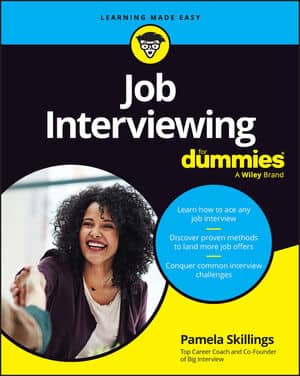A screening interview — or first-cut job interview — weeds out all applicants except the best qualified. Know what to expect during a job screening interview so you can hone your answers.
Employment screening interviews can be conducted over the telephone, via Webcam, or live (in-person). Live interviews typically are held at the employer’s work site, independent employment services, college career services, and job fairs.
Keep the following in mind if you've been asked to participate in a screening interview:
Interviewers increasingly rely on technology to screen applicants. This includes telephone and Webcam (video online) interviews. They use the technology as a cost-cutting move to help assure that candidates aren’t underskilled and overpriced before their companies invest too much time talking with them at length.
The screener passes the survivors to a person who makes the final selection. The screener is usually an employee of the company inside the human resource department, or a third-party (independent) recruiter. The person who makes the selection — the person who has hiring authority — is usually the department manager to whom the victorious candidate reports.
The best screeners have made interviewing an art form. Their job is to gather facts and keep out candidates who aren’t qualified for the position, or who may be qualified but who have a poor employment history.
Screeners determine whether you have the minimum qualifications for the position. They don’t decide whether you’re the best candidate. Typical subjects for the screening interview include:
Questions about your job history
Questions about your salary history or requirements
Questions about your transferable skills — ability to do the job
Inquiries about inconsistencies on your resume (work history gaps)
Probes designed to reveal lies in your resume
Questions to reveal what kind of person you are — reliable, trustworthy, team-oriented
Screeners usually aren’t concerned with evaluating your personality or thought processes. They have one basic responsibility before putting you on the approved list and waving you up to the next interviewing level: to be sure that you qualify. They do so by validating your experience, education, skills, and track record.
Keep your answers straightforward and save most of your dynamo-drama moves for the selection interview. As long as you don’t volunteer reasons for the screener to send you away, expect to be passed to the decision-maker — who assumes that you’re qualified or you wouldn’t be showing up in the interview pool of candidates.

